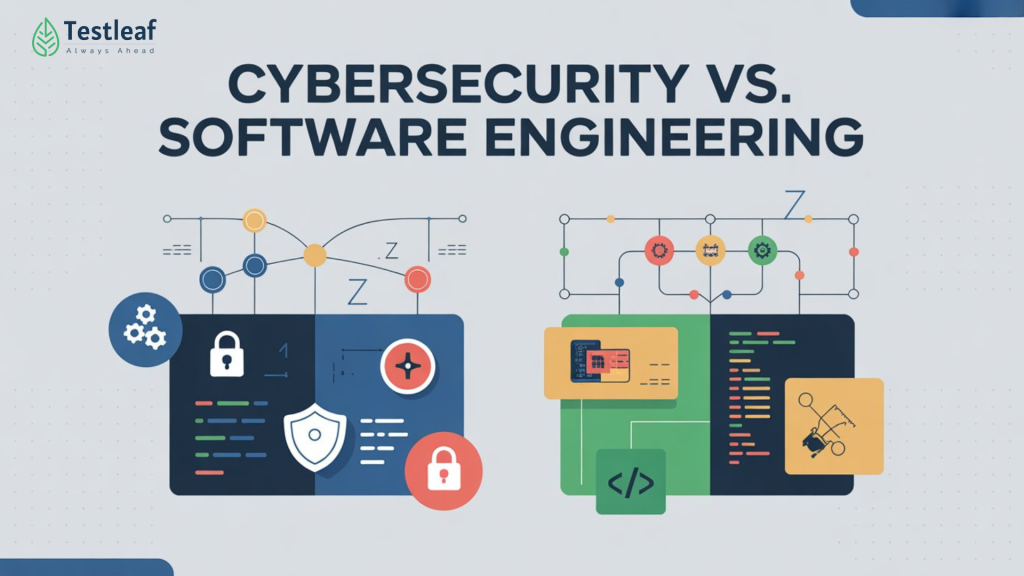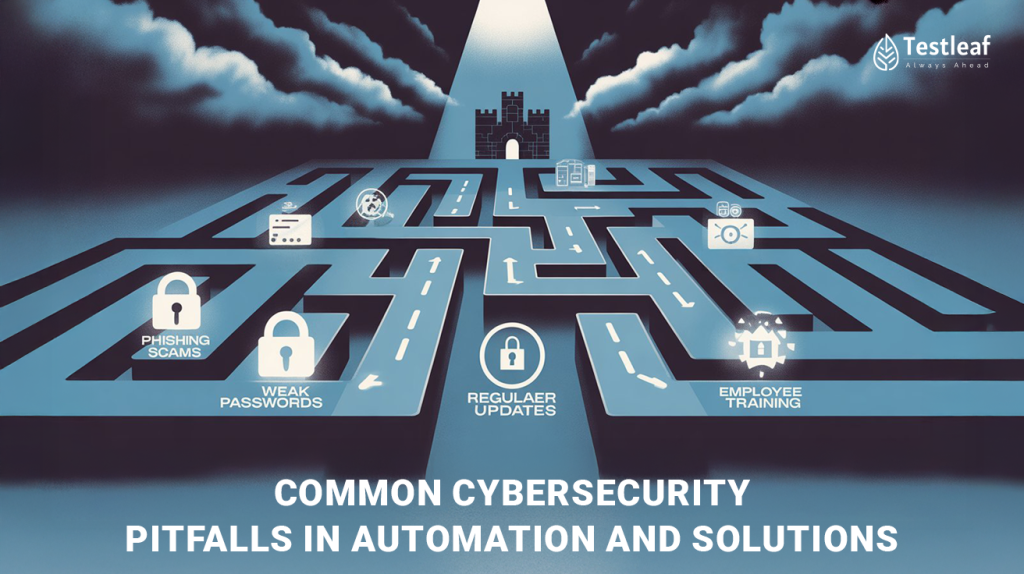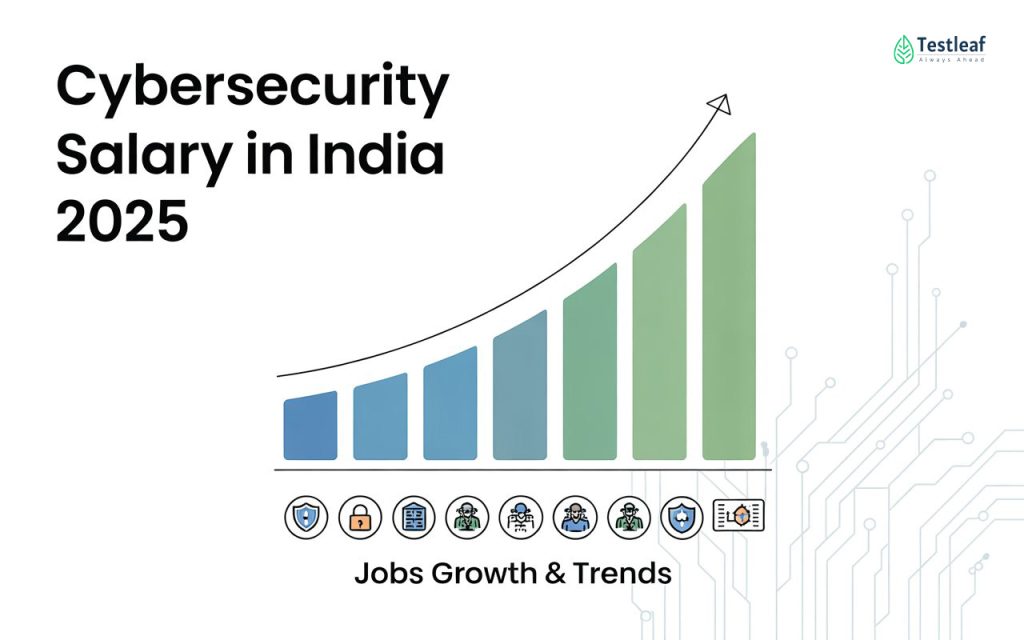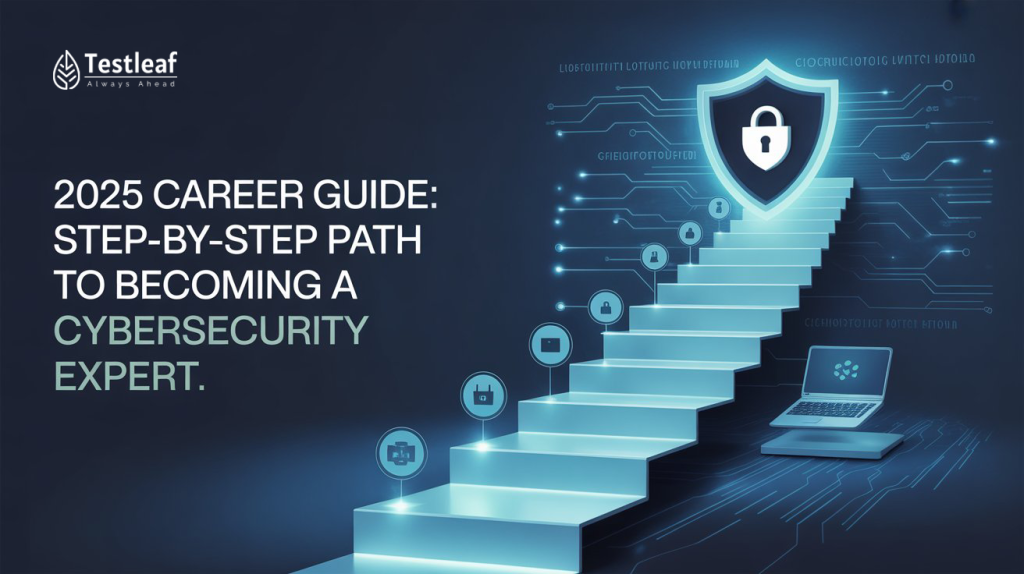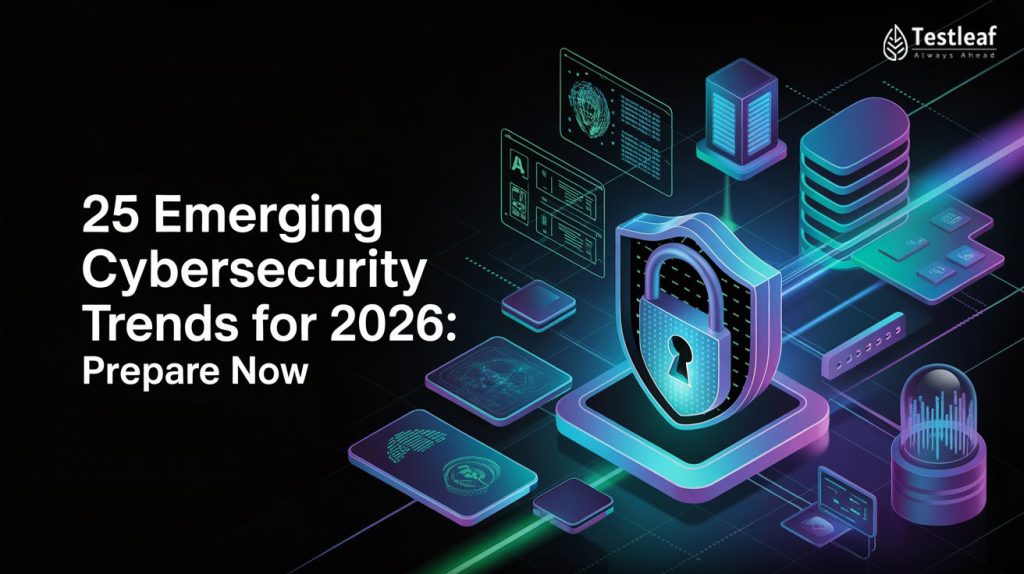In today’s digital-first world, every company — from fintech startups to global enterprises — relies on technology to grow. But as technology expands, so do digital threats. That’s why two of the most in-demand career paths right now are Cybersecurity and Software Engineering.
Both offer high salaries, global demand, and endless learning opportunities — yet they serve very different missions. If you’re wondering which one is right for you, this blog breaks it down in simple terms.
What Is Cybersecurity?
Cybersecurity is the science of protecting data, networks, and systems from unauthorized access or attacks.
Cybersecurity professionals act as the digital defenders of organizations — preventing hackers from stealing data, deploying ransomware, or shutting down systems.
Typical job roles include:
· SOC Analyst: Monitors threats and responds to real-time alerts.
· Penetration Tester (Ethical Hacker): Simulates cyberattacks to find weaknesses.
· Security Engineer: Designs firewalls, antivirus systems, and encryption protocols.
· Incident Responder: Investigates and mitigates breaches quickly.
It’s a field that demands curiosity, critical thinking, and a strong sense of responsibility — because every minute counts when protecting systems from attackers.
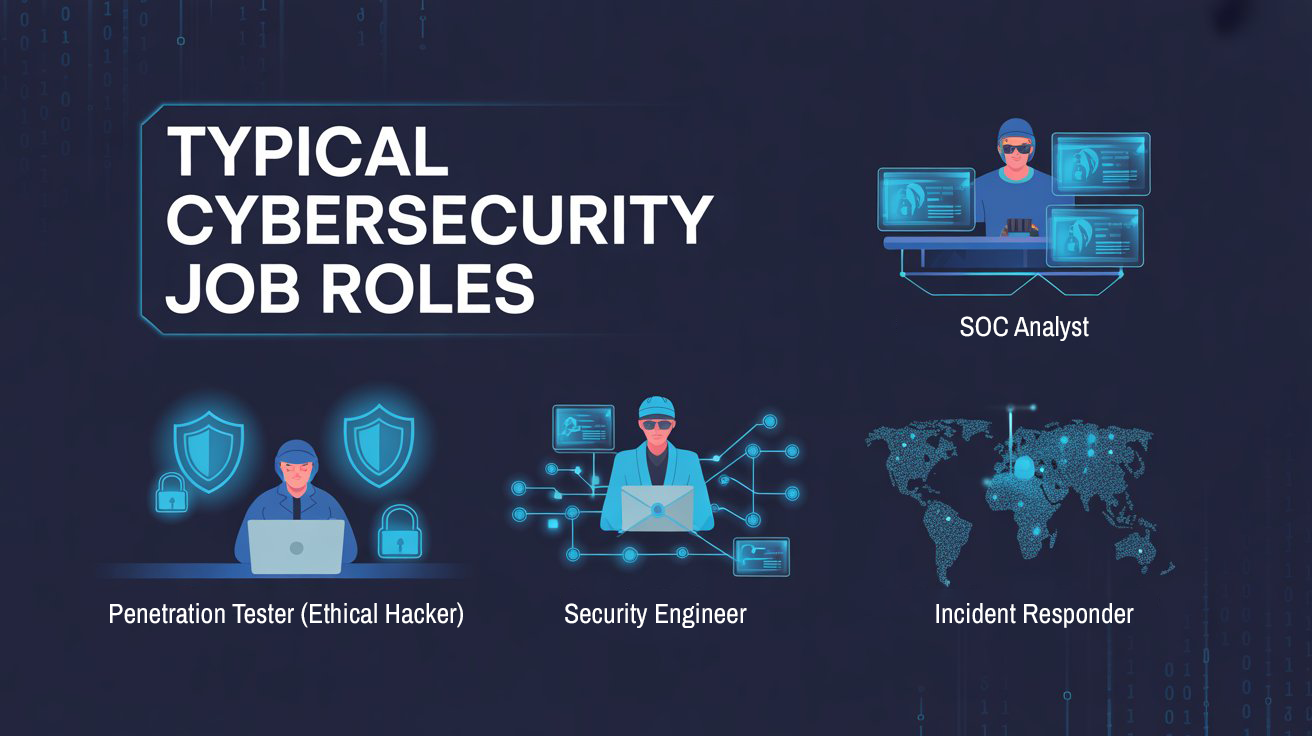
More Insights: automation testing interview questions
What Is Software Engineering?
Software Engineering focuses on designing, developing, testing, and maintaining software applications.
Software Engineers are creators — they build the platforms, apps, and tools we use daily, from social media to online banking.
Typical roles include:
· Frontend Developer: Builds user interfaces.
· Backend Developer: Manages databases and servers.
· Full Stack Engineer: Handles both front and backend.
· DevOps Engineer: Bridges software development and deployment.
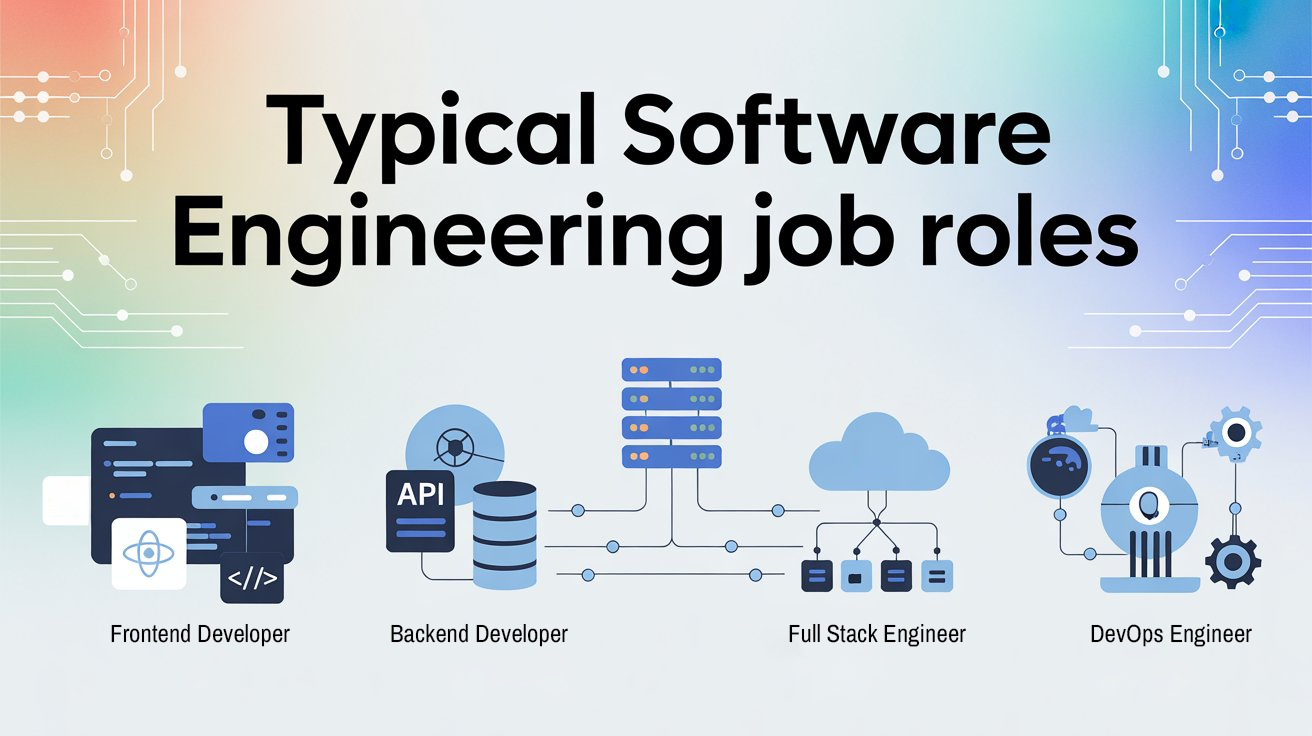
This field suits people who enjoy problem-solving, creativity, and structured logic — transforming ideas into working software.
Key Differences Between Cybersecurity and Software Engineering
| Aspect | Cybersecurity | Software Engineering |
| Core Goal | Protecting systems, networks, and data from threats | Building and improving software products |
| Approach | Defensive — identifying and mitigating risks | Creative — designing and developing applications |
| Focus Areas | Risk management, threat analysis, encryption, compliance | Coding, design architecture, testing, deployment |
| Programming Skills | Python, Bash, PowerShell, SQL, C/C++ for exploits | Java, JavaScript, Python, C#, Kotlin, React, etc. |
| Work Environment | Security Operations Centers (SOC), IT departments, government agencies | Tech companies, startups, product-based firms |
| Mindset | Analytical, investigative, risk-aware | Creative, systematic, detail-oriented |
Skills and Tools, You’ll Need
Both domains require technical expertise, but their toolkits differ:
Cybersecurity Tools:
· Wireshark, Splunk, Nessus, Metasploit, Burp Suite, and SIEM tools
· Knowledge of networking protocols, operating systems, and encryption algorithms
Software Engineering Tools:
· GitHub, Jenkins, Docker, VS Code, Postman, and IDEs
· Strong understanding of algorithms, data structures, and APIs
Interestingly, many skills overlap. For example, both roles need programming knowledge and system understanding — but cybersecurity takes it further by exploring how systems can break.
Don’t Miss Out: api automation interview questions
Education and Career Path
Most Software Engineers begin with a degree in Computer Science or IT and learn programming languages, algorithms, and software design patterns.
Cybersecurity professionals, however, often come from diverse backgrounds — computer science, networking, or even law enforcement — and may hold certifications like CEH (Certified Ethical Hacker), CompTIA Security+, or CISSP.
Both paths allow entry through practical skills and certifications rather than only degrees. Hands-on experience — whether building applications or defending them — matters more than a classroom alone.
Salary and Career Growth
Globally, both careers are high paying. Software Engineers often start with slightly higher base salaries, but Cybersecurity professionals see faster growth because of the massive skill shortage worldwide.
According to industry estimates, there are over 3.5 million unfilled cybersecurity jobs globally — and this gap is increasing every year.
Organizations are investing heavily in security talent as cyberattacks become more complex. A single data breach can cost a company millions, making cybersecurity experts indispensable.
How These Careers Work Together
It’s not always Cybersecurity vs Software Engineering — the two often collaborate.
Software Engineers create applications; cybersecurity experts ensure they’re safe. A secure application requires both strong code and strong defences.
In fact, a growing trend is Secure Software Development, where engineers adopt security-first principles — a perfect blend of both worlds.
Which Career Is Right for You?
Choose Software Engineering if you love:
· Creating new applications or digital experiences
· Coding, debugging, and improving user interfaces
· Seeing your ideas turn into real-world products
Choose Cybersecurity if you love:
· Solving puzzles and investigating threats
· Staying one step ahead of hackers
· Working in fast-paced, high-impact environments
If you’re passionate about protecting people and data — and thrive under pressure — cybersecurity is the field for you.
Final Thoughts: The Future Belongs to Cybersecurity
As AI, IoT, and cloud adoption explode, cyber threats are evolving faster than ever. Every digital transformation project now demands skilled cybersecurity professionals to secure it.
So, while software engineers will always be creators of technology, cybersecurity experts will be its guardians — ensuring that innovation never comes at the cost of safety.
If you’re considering your next career move, remember this: Cybersecurity isn’t just a job — it’s the future.
To build the skills and expertise needed to defend tomorrow’s digital world, start learning through a Cybersecurity course online today.
FAQs
1. What is the main difference between Cybersecurity and Software Engineering?
Cybersecurity focuses on protecting systems and data from attacks, while software engineering builds and improves applications. One defends technology; the other creates it.
2. Which career is better in 2026 — Cybersecurity or Software Engineering?
Both are in high demand, but cybersecurity is growing faster due to rising digital threats and a global skill shortage.
3. What skills are needed for a cybersecurity career?
Key skills include networking, ethical hacking, encryption, and threat analysis. Familiarity with tools like Wireshark, Nessus, and Splunk is essential.
4. Do Cybersecurity professionals earn more than Software Engineers?
Entry-level salaries may favor software engineers, but cybersecurity roles see rapid pay growth due to demand and skill scarcity.
5. How can I start a career in Cybersecurity?
Enroll in a cybersecurity course online or local training like a cybersecurity course in Chennai to build hands-on experience with tools, certifications, and real-world projects.
We Also Provide Training In:
- Advanced Selenium Training
- Playwright Training
- Gen AI Training
- AWS Training
- REST API Training
- Full Stack Training
- Appium Training
- DevOps Training
- JMeter Performance Training
Author’s Bio:

Content Writer at Testleaf, specializing in SEO-driven content for test automation, software development, and cybersecurity. I turn complex technical topics into clear, engaging stories that educate, inspire, and drive digital transformation.
Ezhirkadhir Raja
Content Writer – Testleaf
